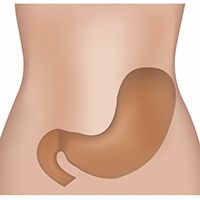Article
Researchers Find Potential Link between Inflammatory Bowel Disease and Cervical Neoplasia
Author(s):
After conducting a population-based, nationwide cohort study, researchers reported a relationship between inflammatory bowel disease (IBD), especially Crohn's disease (CD), and cervical neoplasia.

After conducting a population-based, nationwide cohort study, researchers reported a relationship between inflammatory bowel disease (IBD), especially Crohn’s disease (CD), and cervical neoplasia.
Published in Clinical Gastroenterology and Hepatology, the study evaluated a cohort of approximately 4 million women in Denmark who had been diagnosed with Crohn’s disease (CD) or ulcerative colitis (UC) between 1979 and 2011, along with a matched cohort of women without IBD from the general population, and assessed the risk of cervical neoplasia in women with IBD. Only patients with a first diagnosis of IBD after January 1, 1979 were included to ensure minimal impact of prevalent cases.
Researchers, led by Christine Rungø, MD, PhD, Department of Epidemiology Research, National Institute for Health Data and Disease Control, Statens Serum Institut, Copenhagen, Denmark, also assessed the effect of IBD medications such as azathioprine, mesalamine, oral corticosteroids, and topical corticosteroids on cervical neoplasia risk. They also looked the effect of hormonal contraceptive devices (including oral contraceptives, vaginal ring, and intrauterine devices) on cervical neoplasia risk.
Patients were followed from the point of diagnosis to the end of the study. The researchers analyzed the data to assess incidence rate ratios of cancer screenings and diagnosis of cervical neoplasia in women with IBD, along with odds ratios of cervical neoplasia in women prior to a diagnosis of IBD.
The researchers found, “Women with a diagnosis of CD had increased risk of cervical dysplasia and cancer despite similar screening intensity as in the general population. Patients with UC only had increased risk of dysplasia along with a slightly increased screening frequency compared to controls.”
While both CD and UC patients had increased risks of developing cervical cancer before IBD diagnosis, study results suggested only the patients with CD were at a high risk of developing cervical cancer post diagnosis of IBD. It’s crucial to note that researchers found the women diagnosed with CD at early ages as well as those patients afflicted with CD who were administered azathioprine displayed a much higher risk for cervical neoplasia.
Based on these results, the authors suggested that “Patients with IBD should be encouraged to follow the screening program for cervical neoplasia and clinicians should be aware of the slightly increased risk of HPV-related cervical lesions in IBD patients.”




